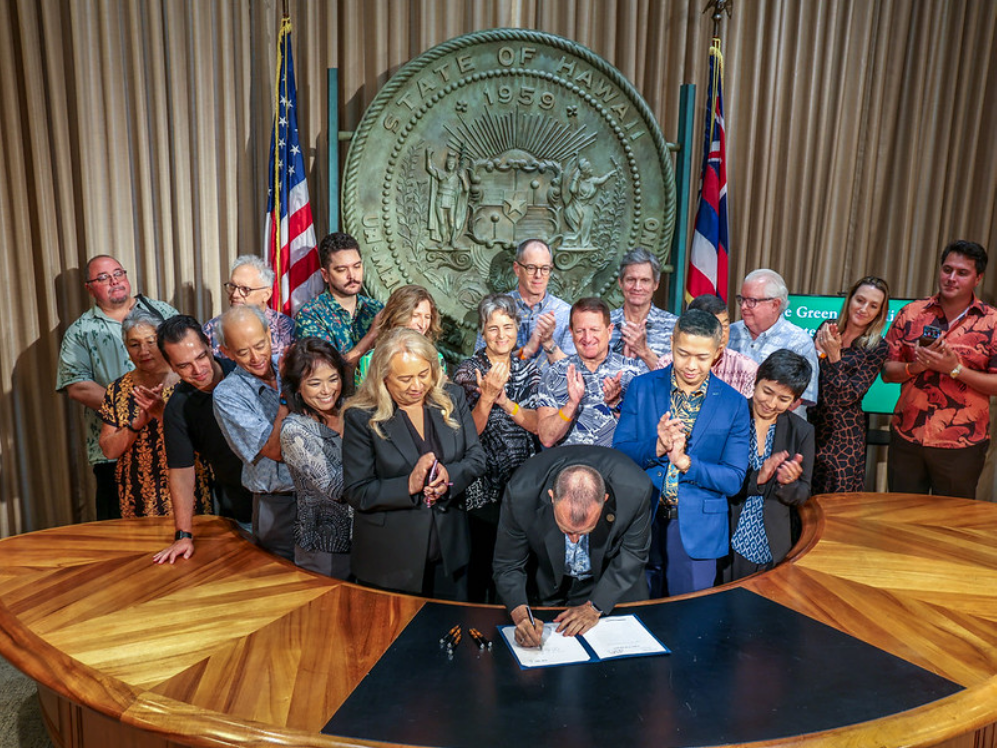HONOLULU – Governor Josh Green, M.D., today signed Senate Bill 1396 into law, establishing a climate impact fee, also referred to as a “Green Fee,” in Hawaiʻi. This legislation aims to create a dedicated funding source for initiatives related to environmental stewardship, hazard mitigation, and sustainable tourism within the state.
The newly enacted Act 96 is intended to address the impacts of climate change by providing consistent funding for resilience-building efforts. The measure follows recommendations from the Climate Advisory Team (CAT), which was formed in 2024 by Governor Green in response to increasing natural disasters. The CAT, led by Chris Benjamin, specifically suggested a dedicated funding source for climate change mitigation and disaster resilience, identifying the transient accommodations tax (TAT) as a potential revenue stream.
Effective in 2026, Senate Bill 1396 will increase the existing TAT rate by 0.75%. Additionally, for the first time, the TAT will be levied on cruise ships that port in Hawaiʻi. This expansion of the tax base to include cruise ships aims to broaden contributions from the tourism sector towards the state’s long-term resilience and environmental well-being.
Officials involved in the bill’s passage noted that the fee is projected to generate approximately $100 million annually. This revenue is earmarked for projects focused on environmental stewardship, climate and hazard resiliency, and sustainable tourism. The Green Administration plans to collaborate with the legislature in upcoming sessions to confirm specific projects as the funds become available.
The signing of this bill was accompanied by the signing of several other related measures, including:
- SB 849 SD1 HD1: Relating to Wildlife Conservation
- HB506 HD1 SD2 CD1: Relating to Conservation Enforcement
- HB3 HD2 SD1 CD1: Relating to Beach Management on the North Shore of O‘ahu
- HB1220 HD1 SD1 CD1: Relating to Invasive Species
- HB316 HD1 SD1 CD1: Relating to the Green Jobs Youth Corps
- HB1137 HD2 SD1 CD1: Relating to Restoration of Beach Lands
- HB750 HD2 SD1 CD1: Relating to the Environment

